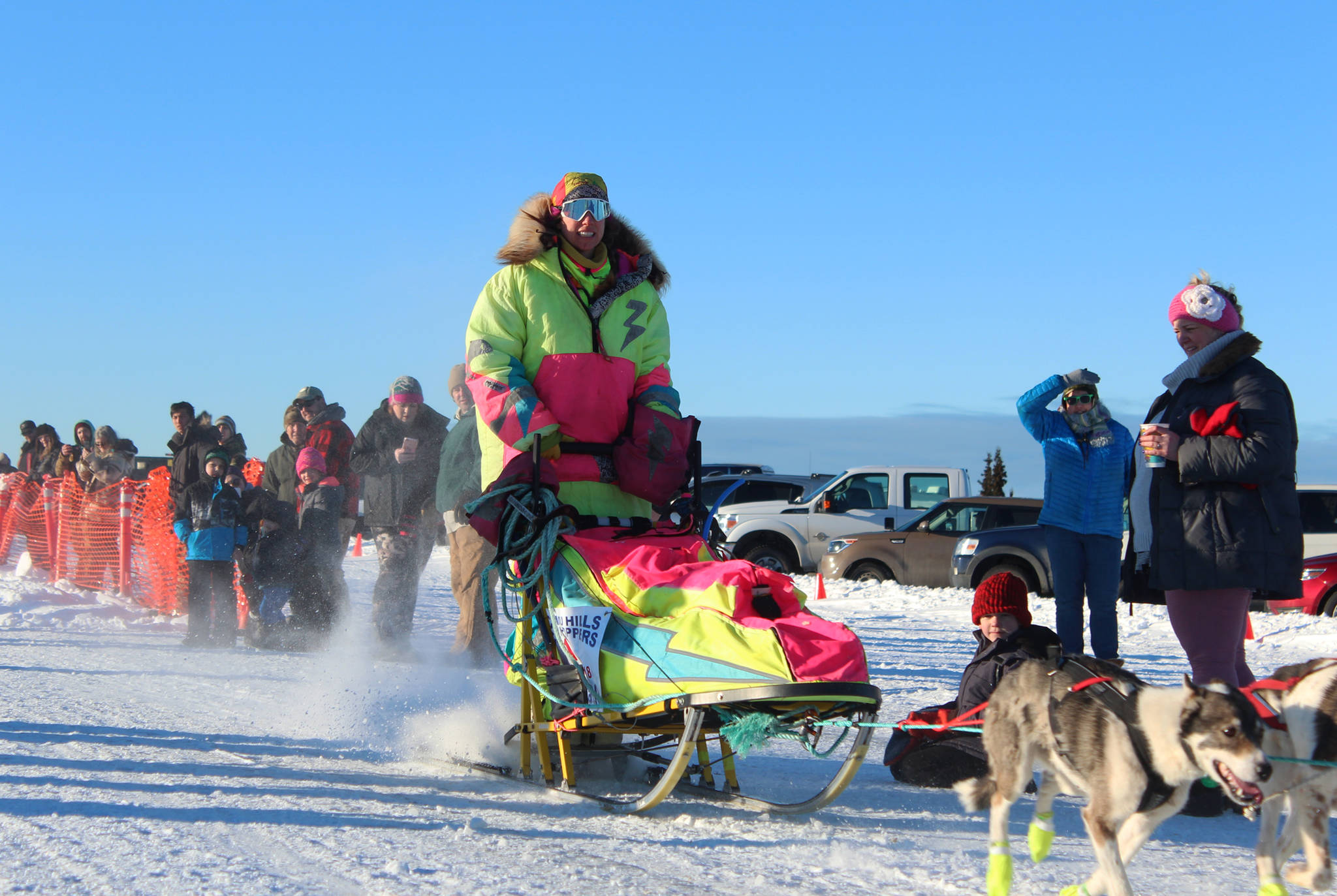In less than three weeks, a raucous group of race dogs will pull into the finishing area at Freddie’s Roadhouse near Ninilchik, musher in tow, as champions of the Tustumena 200 sled dog race.
The race is a qualifier for the prestigious Iditarod sled dog race, but before teams can start dreaming about the burled arch in Nome, they have some preparations to make.
The Tustumena 200 is looking good to go three weeks out after enough snow has blanketed the Caribou Hills area to put on such an event, according to race director Tami Murray. Even though a few days of warm, wet weather plagued the peninsula over the New Year’s holiday, the recent cold snap arrived just in time to save a wilting snow pack before plans had to be changed.
Murray is giving the trails high marks with three weeks to go.
“They’re coming along very well,” she said. “Our groomers are out right now checking the trails from Kasilof to Homer.”
Murray was pleased to announce that for the first time in three years, the race course will include a northern swing up to Kasilof, giving the event a third checkpoint that had been missing for the previous two runnings. Murray said she hopes it will add a bit of variety and intrigue for racers and their furry companions.
“Dogs just don’t like that,” Murray said. “They get bored.”
In its 32nd year of running, the Tustumena 200 stands as the top mushing event each winter on the peninsula. The beginnings of the race supposedly started with a beer run by a few locals trying to find a place to party, according to the race’s website.
The more official version explains that peninsula musher and 1984 Iditarod champion Dean Osmar founded the event as a way for mushers on the Kenai Peninsula to log the required miles needed to qualify for the Iditarod. Murray said the race is held on a combination of private and state land that is owned by Alaska Native groups.
The 2019 race starts Jan. 26 at noon with an interval start of two minutes between teams. The course runs from Freddie’s Roadhouse down to McNeil Canyon Elementary school in Homer, then back north to a isolated checkpoint near Kasilof, which Murray said will help mushers trying to qualify for the Iditarod.
“We’ll have a handful of people trying to qualify for the race,” she said. “The Kasilof checkpoint will give them the opportunity to experience that.”
From there, teams move down the Clam Gulch trail and will end up near Tustumena Lake road, before finding their way back to Freddie’s Roadhouse. Murray said the race has traditionally started in Kasilof but after years of dealing with low snow conditions — including three straight cancellations from 2014 to 2016 — Freddie’s has essentially become the new start and finish.
“The reason is we have a good base set, and it’s going to be fast,” Murray said. “It’s icy right now but a few inches of snow would make for premium conditions.”
Also creating premium conditions are the Caribou Hills Cabin Hoppers, a nonprofit volunteer group that utilizes heavyweight machinery to groom trails that snake their way across the landscape. Murray said the Cabin Hoppers have helped tremendously in keeping the race going.
A pair of volunteer meetings are scheduled for the week before the race, with the first one convening Jan. 17 at 6 p.m. at the Kenai River Center, and the second meeting Jan. 19 at 3 p.m. at Captain’s Coffee in Homer. Murray said the two meetings will fill volunteers in on important information, such as dog handling during the race, veterinarian checks and musher hosting. Murray said families interesting in hosting a race team should visit the event’s Facebook page with the understanding that no personal pets should be introduced to the racing dogs.
“It’s stressful to have other dogs running loose for the teams,” she said. “They just need a place for the musher and handler to sleep, there’s no requirement for feeding but they love to sit and talk with their hosts.”
The race is run over two days and requires 10 hours of rest.
Murray said some of the top names returning to try their hand at winning includes defending champion Nic Petit, Wade Marrs, Lance Mackey, Seward racer Travis Beals, six-time champ Tim Osmar and two-time champ Paul Gebhardt.
The event also includes a 100-mile race. Murray said the race committee adopted a rule in October for this year that they took from the Iditarod, which states that a dog death automatically disqualifies a team from the race, unless due to unforeseen or unavoidable circumstances.
The weekend ends Monday afternoon with a celebratory banquet at the Soldotna Regional Sports Complex.

